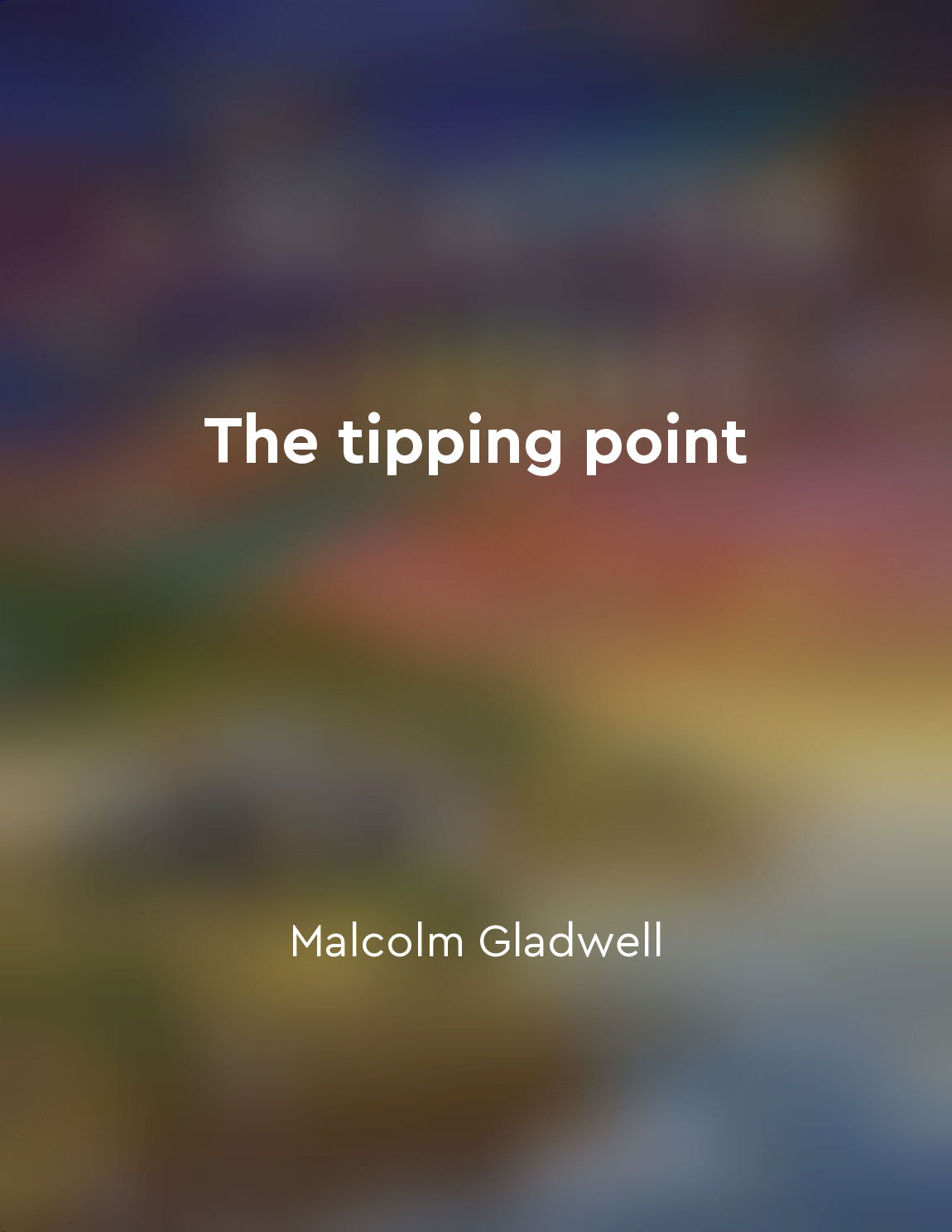The Power of Context can influence outcomes from "summary" of The tipping point by Malcolm Gladwell
The Power of Context is a fascinating concept that highlights the significant impact of environmental factors on human behavior. It emphasizes the idea that small changes in the environment or situation can lead to dramatic shifts in people's actions and decisions. This concept challenges the conventional wisdom that behavior is solely determined by individual characteristics and beliefs. In the book "The Tipping Point," Malcolm Gladwell provides numerous examples and case studies to illustrate how the Power of Context can influence outcomes in various scenarios. He delves into the intricate ways in which social, cultural, and physical environments can shape human behavior and ultimately determine the success or failure of certain endeavors. One key aspect of the Power of Context is the notion that seemingly insignificant details in the environment can have a profound impact on people's behavior. Gladwell highlights how subtle changes in the environment, such as the presence of graffiti or broken windows, can influence crime rates in a neighborhood. These small cues can signal to individuals that disorder and lawlessness are acceptable, leading to a snowball effect of criminal activity. Furthermore, Gladwell explores how social norms and peer pressure can shape individual behavior within a group setting. He discusses the concept of the "Broken Windows Theory," which suggests that maintaining order and addressing minor infractions can prevent more serious crimes from occurring. This theory underscores the importance of creating a positive and structured environment to encourage desirable behavior. Moreover, Gladwell emphasizes the role of context in triggering social epidemics and influencing mass behavior. He discusses how certain social trends, products, or ideas can reach a tipping point and rapidly spread throughout society, leading to widespread adoption. Understanding the power of context is crucial for marketers, policymakers, and individuals seeking to effect change and drive positive outcomes.- The Power of Context serves as a reminder of the intricate interplay between individuals and their environment. By recognizing the influence of context on behavior, we can better understand why people act the way they do and how we can create environments that promote positive outcomes. This concept challenges us to look beyond individual characteristics and beliefs and consider the broader context in which behavior occurs.


